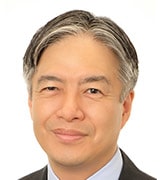Our Program
IJICHI Tomohiro
Profile

Dean, Graduate School of Innovation and Social Studies, Professor, Faculty of Innovation Studies, Seijo University
IJICHI Tomohiro completed a doctoral program in general systems studies at the Graduate School of International and Interdisciplinary Studies, The University of Tokyo, and received Ph.D. in 1994. He worked as a Senior Research Fellow at the National Institute of Science and Technology Policy (NISTEP) of the Ministry of Education, Culture, Sports, Science and Technology (MEXT) and as an associate professor at the Institute of Innovation Research of Hitotsubashi University, before joining Seijo University as a professor in 2007.
He specializes in science, technology and innovation (STI) policy studies. He has an interest in interactions among various actors in STI activities as well as their governance and management, understanding of characteristics of research and innovation systems at the national level, and quantitative observations of R&D and innovation activities.
Expectations for the Program
STI policies are formed and executed to advance scientific and technological activities for producing new knowledge and realizing new functions; to promote innovation activities for creating added value through new products (goods and services) in all sectors, not limited to the business enterprise sector; and to ensure that these efforts contribute to and do not adversely affect society and the economy.
However, due to the "new" and "intangible" nature of STI, it is likely that there are limited objective evidences and arguments for the parts of policy formation and execution that should be based on rational judgment in STI policy area than in other policy areas.
In order to challenge the difficulties inherent in this characteristic, beneficial knowledge for policy formation and execution in STI policy has been required to the degree that it is to be comparable to other policy areas.
In this context, the " 'Science of Science, Technology and Innovation Policy' R&D Program" is one of the most important programs to realize these objectives in Japan.
First, it is expected to derive objective evidences and arguments that can be used for decision making on systems, measures and programs that are the subjects of STI policies, in the form of falsifiable knowledge by approaching them from various aspects. This includes monitoring, analysis, assessment and evaluation of the status and impact of the implemented policies as a matter of course.
Second, the role of experts with specialized knowledge is important in science and technology (S&T) activities. There is a need to scientifically clarify how to utilize such expertise for policy formation and execution, how to reach more reasonable conclusions by sharing knowledge between experts and the general public and policy makers who do not have such expertise, and how to realize such conclusions more effectively with limited administrative resources.
Moreover, in order to formulate and execute policies, it is impossible to separate the knowledge of synthesis and design, such as the knowledge of how to produce more moderate results by integrating the hopes and expectations of the general public and citizens from these various analytical knowledge and findings.
The findings and results obtained through STI activities are basically shared globally, regardless of country, in the medium to long term. In reality, other countries in the world are making similar efforts as Japan. Therefore, I also hope that the efforts and achievements of the science of STI policy in Japan will be shared with the world and that, through this, Japan, as a member of the international community, will be able to contribute to the world.




